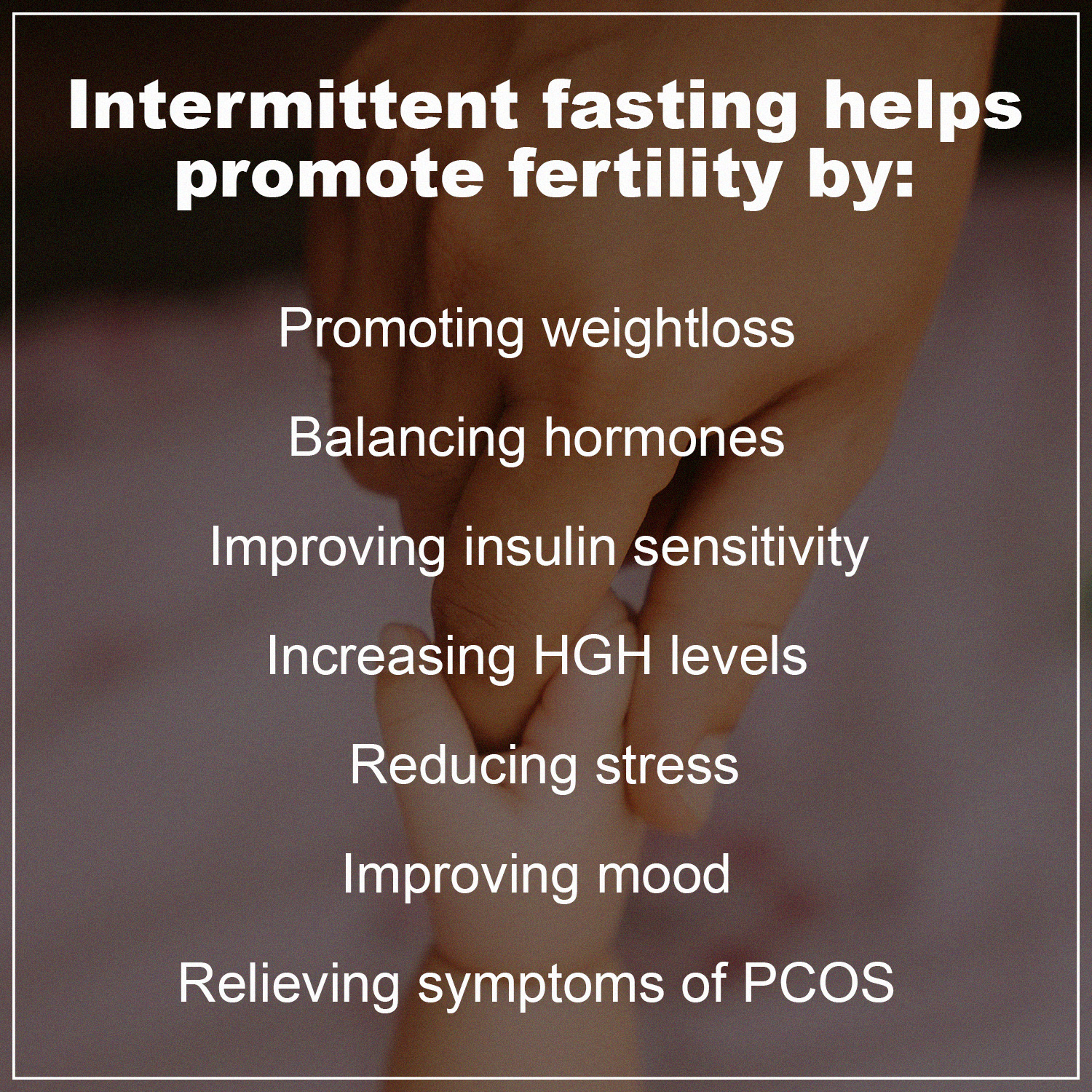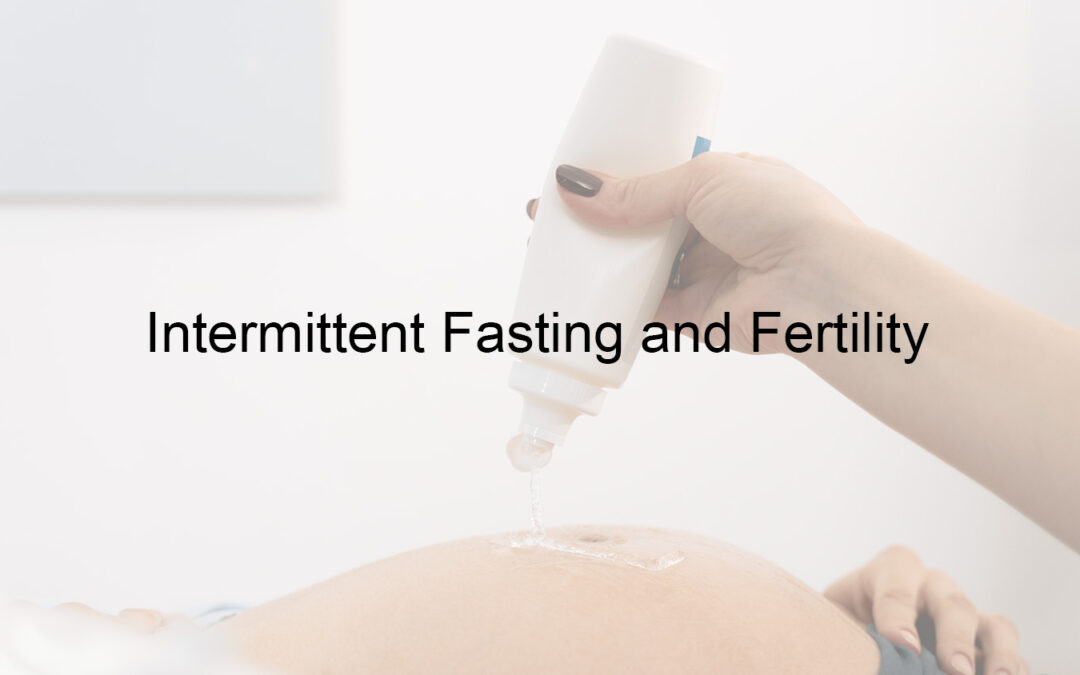Let’s talk about intermittent fasting and fertility. Whether you’re actively trying to conceive or hoping to conceive in the future, you might be wondering if intermittent fasting can help.
There’s a lot of science out there regarding the health benefits of intermittent fasting. And while intermittent fasting can help with fertility, it can also hurt it in some cases.
As an intermittent fasting coach, I want to be as transparent as possible when it comes to safety and results. That’s why I wanted to cover this topic. I wanted to give you the information you need to decide if using intermittent fasting for fertility is right for you. But it’s important to note that I’m not a doctor. So, you should always consult with your physician before drastically changing your diet and lifestyle.
In this blog, I’ll answer all your questions about using intermittent fasting for fertility, including how it affects fertility and some tips for getting started.
Can Intermittent Fasting Affect Fertility?
So, can intermittent fasting affect fertility? In short, yes. Intermittent fasting can affect fertility positively and negatively, depending on your current hormones, body, and individual needs. Interestingly, there’s not a ton of science specifically on intermittent fasting and fertility. But here’s what we do know.
Recent research shows that intermittent fasting positively affects women’s reproductive health. And it can be especially beneficial in helping women with PCOS conceive. However, intermittent fasting for fertility may not be right for everyone. Here’s why.
The female pituitary gland can be incredibly sensitive to lowered caloric intake. As a result, if intermittent fasting takes you below your targeted levels, it could cause your LH and FSH levels to drop. The studies confirming this drop have only been done on animals, but it does raise an important point.
Intermittent fasting shouldn’t take you below your target calorie range. Instead, you want to make sure you eat the calories and nutrients your body needs in your designated feeding window. Ultimately, you want to ensure you get the right number of calories, especially if you’re actively trying to conceive.
How Does Intermittent Fasting Help Fertility?

Even though we don’t have much science on intermittent fasting and fertility, we do know that intermittent fasting helps in several areas that can, in turn, help with fertility. Let’s look at some of those areas now.
Promotes Weight Loss
Many people start fasting to lose weight. And for good reason. Intermittent fasting has been scientifically proven to be effective for weight loss. When it comes to fertility, weight loss can be incredibly beneficial.
In fact, studies show that when women lose between 5-10% of their body weight, their chances of fertility improve. Even a 5% reduction can result in an improvement in ovulation frequency. So, fasting can help improve fertility indirectly with weight loss.
Helps To Balance Hormones
Intermittent fasting has positive effects on hormones. In fact, fasting can help improve your body’s production of estrogen, which is crucial for conception.
Fasting can also help balance your hunger hormones, leptin and ghrelin, making it much easier to maintain a healthy weight.
Improves Insulin Sensitivity
Insulin resistance can cause women to ovulate irregularly. It can even cause ovulation to stop altogether. Consequently, having normal insulin levels is incredibly important when trying to conceive.
Intermittent fasting improves insulin sensitivity. In some cases, you can even reverse insulin resistance with intermittent fasting. As a result, IF can help make sure your body continues to ovulate regularly.
Increases Levels of Human Growth Hormone
Human growth hormone (HGH) has been used to treat female and male infertility for decades. And fasting can result in a significant increase in HGH levels. Actually, one study found that HGH levels increase by five times during a 24-hour fast.
As a result, intermittent fasting can help increase your chance of getting pregnant by naturally increasing your HGH levels.
Reduces Stress Levels and Improves Mood
Did you know that recent studies show that women with higher stress levels take 29% longer to get pregnant than their less-stressed peers? Additionally, women with depression are two times as likely to experience infertility.
Intermittent fasting stabilizes cortisol (the stress hormone). And recent studies show intermittent fasting can have positive effects on anxiety and depression. So, if stress is causing your fertility issues, then intermittent fasting can help.
Helps with PCOS
PCOS is an often-debilitating endocrine disorder affecting women of childbearing age. One of the side effects of PCOS is difficulty getting pregnant and irregular menstruation. People living with PCOS also have problems losing weight and excess androgen hormones.
Intermittent fasting can help with PCOS symptoms, including excess weight, hormonal imbalances, and infertility. In that way, if you have PCOS and are struggling to get pregnant, intermittent fasting could be extra beneficial for you.
Get Guidance While Intermittent Fasting for Fertility
So, can intermittent fasting affect fertility? While there aren’t a ton of studies on fertility and intermittent fasting, we do know that intermittent fasting helps improve factors that contribute to fertility. For example, weight, insulin levels, and stress all impact fertility and can all be improved via intermittent fasting.
However, intermittent fasting isn’t right for everyone. If you’re underweight or already pregnant, it’s important to focus all your energy on getting adequate nutrition.
Additionally, if you’re concerned that your LH or FSH hormones will be negatively affected by intermittent fasting, you might avoid fasting while actively trying to get pregnant and instead use it as a tool to get your body ready.
For example, you could use intermittent fasting to lose weight, reduce stress, balance your hormones, regulate your cycle, etc. Then, once everything’s functioning optimally, you can resume a healthy eating pattern without fasting while actively trying to conceive.
Of course, every person is different, and what is right for your body isn’t always right for someone else’s. If you have concerns about how intermittent fasting might affect you and your fertility, be sure to chat with your doctor, OBGYN, or fasting specialist.
If you’re still unsure if intermittent fasting is right for you – I can help. As an intermittent fasting coach, I specialize in helping people reach their goals with IF, and I can help you decide if fasting is suitable for you.
Schedule your free consultation today. Or choose an online fasting coach program to get started right away.




